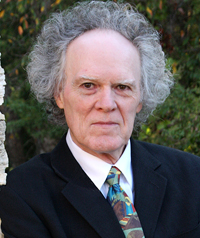
Kim Hill’s longstanding research program before his retirement was principally concerned with the functioning of the democratic process, the roles of elites and the mass public in that process, and government policy making in democratic political systems. His research advanced systematic theory to explain how elite and mass preferences for policy are interrelated in democratic systems and how democratization affects the translation of mass preferences into policy. Dr. Hill published numerous articles on these concerns in leading journals, and his work on these topics culminated with the book Representation in Congress: A Unified Theory (Cambridge University Press, 2015) co-authored with Soren Jordan and Patricia Hurley. He is also the author, co-author, or editor of several political science textbooks and of the following books of original research: Toward a New Strategy of Development, The Criminal’s Image of the City, Democracies in Crisis: Public Policy Responses to the Great Depression, and Democracy in the Fifty States. For his research productivity Dr. Hill was awarded the Cullen-McFadden Professorship in Political Science, and he holds a lifetime Presidential Professorship for Teaching Excellence.
After his retirement Dr. Hill began a new research program that investigates the causes of individual-level variation in scholarly research productivity, and he has published a number of articles on that topic.
Dr. Hill also served in numerous leadership positions in political science. Most notably, he served with his colleague Jan Leighley as the editors of the American Journal of Political Science, was the President of the Southern Political Science Association, a member of the Executive Councils of both the Midwest Political Science and the Southern Political Science Associations, and a member of the Editorial Boards of a number of scholarly journals. At Texas A&M he served on many department, College, and University committees, and he was an active member of the Faculty Senate for many years.
